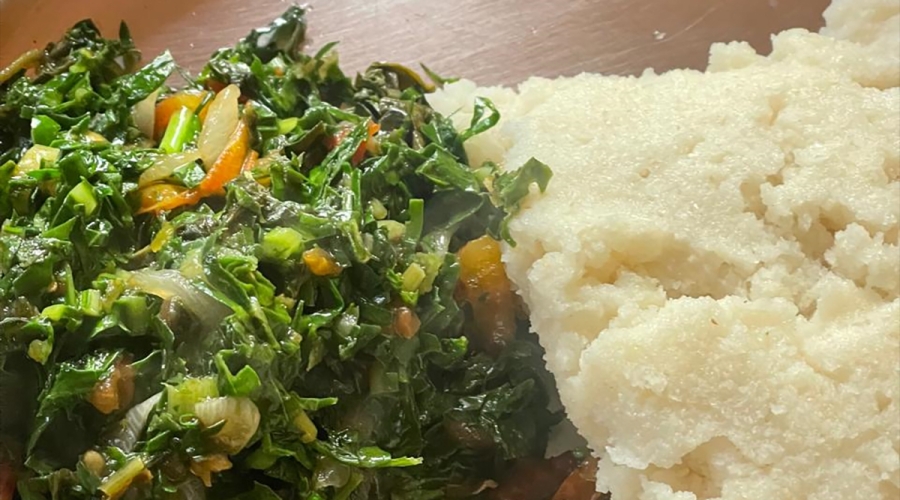Africa's Culinary Colonization and the Path to Freedom

This is not merely about bread and rice though. It is about the lingering chains of mental slavery that bind us to foreign tastes and foreign dependencies. It is about the maddening paradox of a continent rich in agricultural diversity yet begging for crumbs from the global North's table.
In the warm, fertile lands of Ghana and Kenya, where the sun kisses fields of millet and the earth cradles roots of cassava, we find ourselves in the absurd position of craving wheat. Wheat! A grain as foreign to our soil as snow, yet one that has woven itself into the fabric of our daily lives with the insidious tenacity of a colonizer's grip.
It’s no wonder Africa spends nearly $20 billion every year to import wheat from other parts of the world. Our money floods out so that bread can trickle into our breakfast tables. In addition to wheat, Africa remains addicted to Asian rice. Nigeria alone, will spend a staggering US$1.31billion to import the Asian rice that is consumed widely across Africa, at the expense of the more nutritious African rice.
Africa has 65% of the world's remaining uncultivated arable land, plenty of fresh water and enjoys approximately 300 days of sunshine annually. Which means that we can be the world’s bread basket, a food super power unparalleled in the world. Why then do we continue to rely on foreign grown foods like wheat and Asian rice?
This is not merely about bread and rice though. It is about the lingering chains of mental slavery that bind us to foreign tastes and foreign dependencies. It is about the maddening paradox of a continent rich in agricultural diversity yet begging for crumbs from the global North's table.
Consider the irony: Ghana, a land blessed with an abundance of indigenous grains and tubers - millet, rice, sorghum, cassava, yam, sweet potato - finds itself at the mercy of wheat prices dictated by conflicts in distant lands. The same applies to other African countries. We have allowed our palates and plates to be colonized, turning our backs on the bounty beneath our feet.
This culinary colonization is not accidental. It is the residue of a carefully orchestrated strategy that spans hundreds of years. The Portuguese introduced Asian rice to the west coast of Africa in the sixteenth century. That’s when the decline of African rice, that had grown in that region for centuries, begun. The Portuguese, together with the British, were also responsible for introducing maize in Kenya, in the late nineteenth century dealing a blow to age old African grains like millet.
This is the context within which Africa finds itself still trapped in a web of wheat dependency. Yet parts of Europe, especially Eastern Europe are not as reliant on wheat. They use other flour sources like rye flour, whose distinct nutritional profile and unique flavor makes it popular for many baked products.
While Europe diversifies its flour sources, we cling stubbornly to the notion that bread must come from wheat and wheat alone. This is not just culinary conservatism; it is culinary colonization.
The solution lies not in distant wheat fields but in our own rich soil and the innovative minds of our people. It lies in our indigenous food systems, where recipes for millet bread, sweet-potato doughnuts and more await to be unleashed upon our markets and our breakfast tables. It lies in the hands of young entrepreneurs, ready to revolutionize our diets if only given the chance.
But this chance must be created. It must be forged in the fires of state-funded research, tempered by venture capital for start-ups, and hardened by a national commitment to eat what we grow and grow what we eat. This is not mere agricultural policy; it is an act of economic and cultural liberation.
For too long, we have allowed our taste buds to be colonized, our agricultural policies to be dictated, and our economic potential to be stunted. A food revolution beckons and we must respond accordingly.
The time has come for Africa to rise and reclaim its culinary heritage. To turn away from the wheat fields of others and cultivate the rich diversity of our own lands. To create breads that speak of our soil, our climate, our culture. To nourish our bodies with foods that are truly ours.
This is the food revolution Africa needs - one that will inject health not just into our bodies, but into our economies, our cultures, and our sense of self. It is a revolution that begins with something as simple as a loaf of bread made from wheat, but one that could reshape the very future of our continent.
The question is not whether we can do this. The question is whether we have the courage to break free from the tastes imposed upon us and rediscover the flavors of true independence. Our ancestors knew the power of food sovereignty. It's time we remember it too.
Let us make bread not from borrowed wheat, but from the grains of our own liberation. Let us feast not on the leftovers of colonial mentality, but on the rich harvest of African culinary tradition and innovation. This is our challenge, our opportunity, our destiny. The table is set. Will we take our rightful place at it?
Cette adresse e-mail est protégée contre les robots spammeurs. Vous devez activer le JavaScript pour la visualiser.

 Fr
Fr  Ar
Ar  En
En